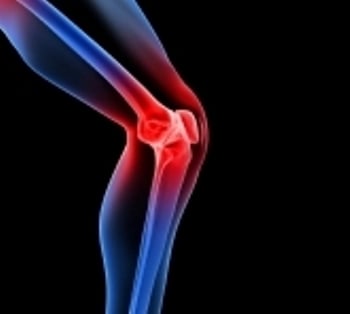-
Free delivery - for orders over £60 & selected products
our blog post
Top 10 Plant-Based Research and News Stories
Top 10 Plant-Based Research and News Stories
In 2005 “The China study” was published, the largest nutritional study that has ever been undertaken. The conclusion was that countries with a high consumption of animal based foods were more likely to have higher death rates from “western diseases” as opposed to countries that ate more plant based foods.
This update looks at the top ten research and news articles to hit the headlines in recent times.
10) Major nutrition group states that well-planned vegan diets (with select supplements) are safe and healthy for all ages
The Academy of Nutrition and Dietetics, the professional organization of dietitians, released a position statement on vegetarian diets, saying appropriately planned vegetarian, including vegan, diets “are appropriate for all stages of the life cycle, including pregnancy, lactation, infancy, childhood, adolescence, older adulthood, and for athletes.” They go on to highlight the benefits of plant-based diets, including a nice explanation of specific nutrient concerns and non-concerns as well as the environmental impact of food choices.
9) Lifestyle vs Genes
In a cohort study looking at coronary artery disease, lifestyle and genes, researchers found that individuals with 3-4 lifestyle factors had about a 50% reduction in risk compared to those with 0-1 lifestyle factors. This was true across all levels of genetic risk. The 4 lifestyle behaviours: not smoking, BMI <30 (ie. being healthy weight or overweight, not obese), physical activity at least once a week, following ½ of the modest heart organization dietary recommendations.
These are pretty low bars for a healthy diet and lifestyle. Adopting these factors, compared to those not following healthy lifestyles, was about as beneficial as having low genetic risk compared to having high genetic risk.
8) Plant-Based Olympians
Two American athletes, tennis player Venus Williams and weight lifter Kendrick Farris, and one Australian athlete, sprinter Morgan Mitchell, competed in the 2016 Rio Olympics. Venus Williams has been eating a largely plant-based diet for the past 5 years since being diagnosed with Sjogren’s syndrome, an autoimmune disorder. She took home a silver medal in mixed-doubles from Rio.
Prior to the 2016 Olympics, Kendrick Farris broke the U.S. record in his weight class of 207 lbs by lifting a combined 831 lbs. He placed 11th at the games. This was his 3rd Olympics and his first as a vegan.
Morgan Mitchell, the Australian sprinter who won the Australian 2016 National Title prior to this summer’s games placed 8th in the 400m. She too, is relatively new to veganism, changing her diet about 1 ½ years before the games.
7) Animal protein keeps taking hits
One study found that eating plant protein instead of animal protein cuts risk of death. An editorial in the American Journal of Clinical Nutrition made a compelling case that eating excess animal protein, particularly dairy protein, is a contributor to childhood obesity and related diseases. Women who get diabetes during pregnancy (gestational diabetes) are at a significantly higher risk of later getting full blown type 2 diabetes if they eat a low-carb dietary pattern, particularly if it is rich in animal protein and fat. And postmenopausal women who consume the most animal protein are at a 60% increased risk of getting heart failure compared to those who consume the least animal protein.
6) A healthy diet is not just about protein or plants vs animals
A study of health-conscious people in Oxford found that vegetarians and vegans unfortunately eat just as much fat and sugar as omnivores. This is not a knock on vegans or veganism, which incorporates important lifestyle and food ideas that go far beyond nutrition and health. But we consistently have found that consuming added sugars and fats present a persistent challenge to achieving optimal health, for both omnivores and strict vegans. Added sugars are sugars and syrups that are added to foods or beverages when they are processed or prepared. Added sugars do not refer to whole foods like fruit. It’s too easy to get stuck in the animals vs. plants fight and forget about added fats and sugars, which present perhaps equally grave threats to most people’s health.
5) Ancient humans ate an abundant variety of plants
A site deemed to be 780,000 years old included plant remains that human ancestors were using as food. A rich, wide variety of plant remains were found, including 14 species producing underground storage organs (ie. starchy plants, like tubers). The popular idea that the paleo diet was a starch-free, nearly carnivorous diet consisting of hunting woolly mammoths and deer is a long outdated public myth we should just dispense with. From this study and many others, it’s clear we consumed lots of plants in addition to whatever meat we ate.
4) High-protein supplements negate the beneficial effects of weight loss on insulin sensitivity
One of the great benefits of weight loss is often in insulin sensitivity, but one fascinating study found that merely consuming two servings of whey protein a day in addition to a standard low-calorie diet eliminated the benefit of weight loss. People lost weight but had no improvements in insulin sensitivity. Many people commonly try to lose weight by eating protein bars and shakes and protein-based meal replacements. Even if they lose weight, they may be sabotaging their efforts at improving metabolic health if they consume extra protein, particularly whey protein.
3) Chinese government says to eat less meat
The Chinese government recently recommended decreasing meat intake to 50% of current levels by 2030. The updated dietary guidelines are aimed at curbing the rapidly growing rates of obesity, diabetes, and heart disease in China. China currently consumes 28% of the world’s meat and 50% of its pork. This decrease in meat consumption is also predicted to be a big win for the environment, reducing the predicted 2030 greenhouse gas emissions from the Chinese livestock industry by more than half.
These new recommendations have found allies in Hollywood. Arnold Schwarzenegger and James Cameron as well as Chinese film star Li Bingbing who are featured in public service announcements in collaboration with environmental organization WildAid and the Chinese government. The government is encourage the Chinese public to reduce their meat intake to improve health and avoid global warming.
2) Moderation doesn’t work
Though our culture is terribly enamoured with moderation, we consistently see in our practice that moderation gets in the way of achieving health. Researchers looking to better understand how people define “moderation” found that there are lots of problems with the term. Most people seem to define moderation by assessing the amount they would prefer to eat and then adding a bit more. If you would prefer 5 cookies, a moderate amount in your mind would be 6 cookies. If another person would only prefer 1 cookie, they would probably say that a moderate amount would be 2 cookies. Everything in moderation as a health message is useless at best and profoundly harmful at worst. Researchers write, “If, as we show, the concept of moderation is poorly understood and subject to potential self-serving biases in perception, moderation messages may do little to reduce calorific intake and may actually result in increased food consumption.”
1) Going vegan might save millions of humans, trillions of dollars, and maybe planet Earth
A group of researchers at Oxford University published an analysis comparing the future effects of three different dietary scenarios out to the year 2050. They considered effects on global human mortality, greenhouse gas emissions, and economic value of health and environmental benefits. The three dietary patterns were 1) a moderate pattern following dietary guidelines 2) vegetarian and 3) vegan. Global adoption of any of the three dietary scenarios would be beneficial, but the more plant-based the diet, the greater the benefit. Global adoption of a vegan diet was projected to avoid 8.1 million deaths per year and reduce mortality by 10% for all causes by 2050. Vegan diets were projected to reduce food-related greenhouse gas emissions by 70% of those predicted in 2050. A vegan diet was projected to save $1067 billion per year in health-related costs (3.3% of the predicted global GDP) and $570 billion per year due to the avoided environmental harm.
For details of all the research and further information On Thomas M Campbell MD the co-author of The China study and author of The China study Solution







